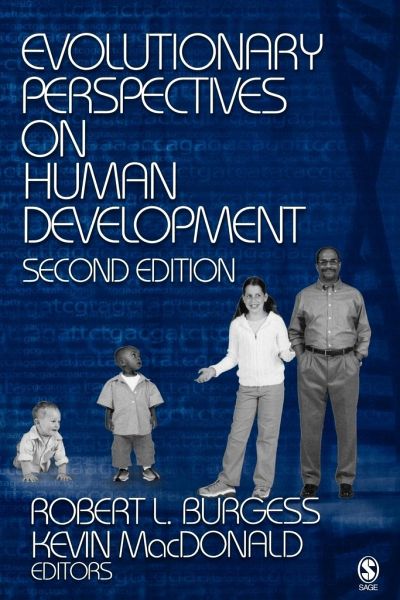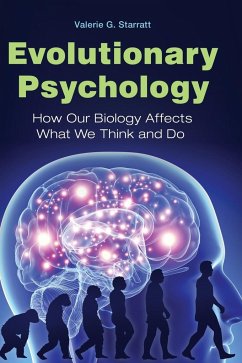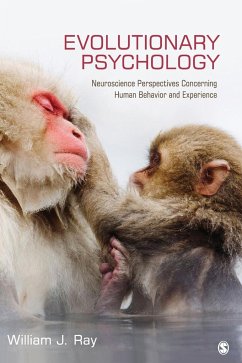
Evolutionary Perspectives on Human Development
Versandkostenfrei!
Versandfertig in 1-2 Wochen
148,99 €
inkl. MwSt.

PAYBACK Punkte
74 °P sammeln!
'This new edition of Evolutionary Perspectives on Human Development is obligatory reading for anyone interested in the integration of evolutionary theory into developmental psychology. . . . It provides a valuable corrective to recent narrow approaches which argue that the human mind is constructed exclusively of domain-specific mechanisms and which deemphasize the importance of human psychological and behavioral plasticity. . . . Anyone who reads this book will come away with a richer understanding of our shared human nature' -Bill Irons, Northwestern University 'In this volume, Burgess and M...
'This new edition of Evolutionary Perspectives on Human Development is obligatory reading for anyone interested in the integration of evolutionary theory into developmental psychology. . . . It provides a valuable corrective to recent narrow approaches which argue that the human mind is constructed exclusively of domain-specific mechanisms and which deemphasize the importance of human psychological and behavioral plasticity. . . . Anyone who reads this book will come away with a richer understanding of our shared human nature' -Bill Irons, Northwestern University 'In this volume, Burgess and MacDonald have brought together a distinguished group of psychologists and anthropologists to investigate how-given our evolutionary heritage, genetic make-up and salient environment-behavior, cognition, and emotion unfold from the human organism. They make clear that both evolutionary functional and proximate behavioral perspectives are essential to understanding the human mind and its products. Many of these essays should be required reading for sociobiologists, evolutionary psychologists, and evolutionary anthropologists and their ilk' -Jeffrey Kurland, Penn State 'Its clear that evolutionary biology has a tremendous amount to offer when it comes to our understanding of human development, and yet, many experts in developmental psychology have remained impervious to these insights. At last, this may change: Burgess and MacDonald have compiled a rich array of theory and data, much of it contributed by the leading lights of evolutionary psychology (or, if you prefer, sociobiology). A very valuable collection and one that might help define a new and important field' -David P. Barash, University of Washington Evolutionary Perspectives on Human Development, Second Edition considers the role of evolutionary theory in the field of developmental psychology to examine important topics of individual human development. This unique book fills an important gap in the literature, applying evolutionary models to human development by focusing on central development issues. The book emphasizes the importance of both domain-general evolved psychological mechanisms and domain-specific processes. The text also integrates behavior-genetic research with evolutionary and developmental principles. In this contributed volume, editors Robert L. Burgess and Kevin MacDonald have brought together a distinguished group of social and behavioral scientists employing multiple levels of analysis drawn from a variety of academic disciplines. This diverse group of contributors illustrates the enormous power of evolutionary theory by elucidating human behavior and its development and the various ways it is manifested in different environments. Evolutionary Perspectives on Human Development applies evolutionary theory to such topics as parent-child relationships, the maltreatment of children, psychopathology, cooperation and competition among siblings, and the acquisition of vital resources in different cultural settings from an evolutionary point of view. Key Features: - Comprehensive coverage of the impact of evolutionary theory on human development provides students with the most thorough foundation available in this area. - Contributions by leading scholars and researchers expose readers to the exciting research and developments that have been occurring in the field. - An introductory chapter written by the volume editors provides an accessible overview of the book. Evolutionary Perspectives on Human Development provides state-of-the-art groundwork in evolutionary theory as viewed by leading thinkers in the field














